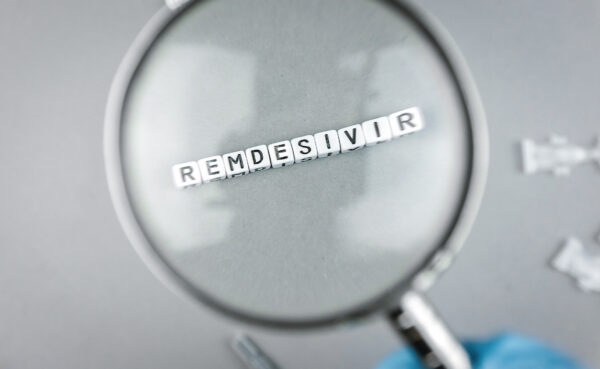
Gilead Sciences’ antiviral drug for Covid-19 may have shown a definitive ability to improve the time in which patients recover, but several researchers are now criticizing the clinical trials for what they call a lack of diversity sufficient to reflect the demographics of the disease.
In a commentary published Tuesday in The New England Journal of Medicine, physicians and pharmacists from several academic medical centers and hospitals in the U.S. and Mexico wrote that Black Americans accounted for only 20% of the 1,063 patients in the Phase III randomized and placebo-controlled National Institute of Allergy and Infectious Diseases trial of remdesivir and 11% of the 397 patients in Gilead’s own study comparing remdesivir administered over five or 10 days. Latino and Native American patients in the NIAID study – the only one for which those demographic data were available – accounted for 23% and 0.7%, respectively.

With the Rise of AI, What IP Disputes in Healthcare Are Likely to Emerge?
Munck Wilson Mandala Partner Greg Howison shared his perspective on some of the legal ramifications around AI, IP, connected devices and the data they generate, in response to emailed questions.
Nevertheless, the authors wrote, both studies underrepresent Black, Latino and Native Americans despite having sites in locations where they are overrepresented in terms of the number of people with the disease and those dying from it.
Gilead said Monday that it had submitted its application for the approval of the drug, which it would market under name Veklury, to the Food and Drug Administration. The filing is supported by the same two Phase III trials cited in the NEJM paper.
A spokesperson for the company pointed to a May 26 letter it had sent to Sen. Bob Menendez, D-New Jersey, expressing a commitment to ensuring diversity in the remdesivir studies, as well as last month’s announcement of a partnership with the Morehouse School of Medicine – a historically Black medical school in Atlanta – to address racial health inequities related to Covid-19. Additionally, he pointed to an analysis of the Gilead-sponsored study presented at the International AIDS Society’s Covid-19 Conference last month indicating that that no worse outcomes were found among traditionally marginalized racial and ethnic groups.
Nevertheless, the NEJM commentary highlights how there have been significant racial disparities in the number of people contracting and dying from the novel coronavirus. According to the Centers for Disease Control and Prevention, cases among Black and Latino patients are as much as three times higher than among white patients, particularly in urban areas. Data for Native Americans are not as easy to come by, several counties with large Native American populations have seen significant outbreaks, according to The New York Times.
“Indeed, despite widespread underreporting of patients’ race or ethnicity, we know that Black, Latinx, and Native Americans are dying from Covid-19 at rates disproportionate to their representation in the population in multiple U.S. regions,” the NEJM paper authors wrote, using a gender-neutral term for Latinos that has seen increased use in recent years. “The modest benefit seen in time to clinical improvement with remdesivir may not be generalizable to minority populations, given the differences in disease severity and outcomes.”
Data from the NIAID study showed that patients who received the drug recovered in a median 11 days, compared with a median 15 days for those in the placebo arm. Data from Gilead’s Phase III study showed a benefit in some patients with moderate Covid-19 receiving the five-day regimen, but the benefit seen among those receiving the drug for 10 days did not reach statistical significance.
The NEJM commentary authors point to one of the primary reasons experts say clinical trial diversity is so important. Generalizing findings from white and male trial participants, they have said, runs the risk leading to inaccurate assumptions about drugs’ safety and efficacy. Nevertheless, they have said, cultural and geographic barriers can make recruiting more diverse trial populations harder than it might seem at first glance.
Photo: MysteryShot, Getty Images














